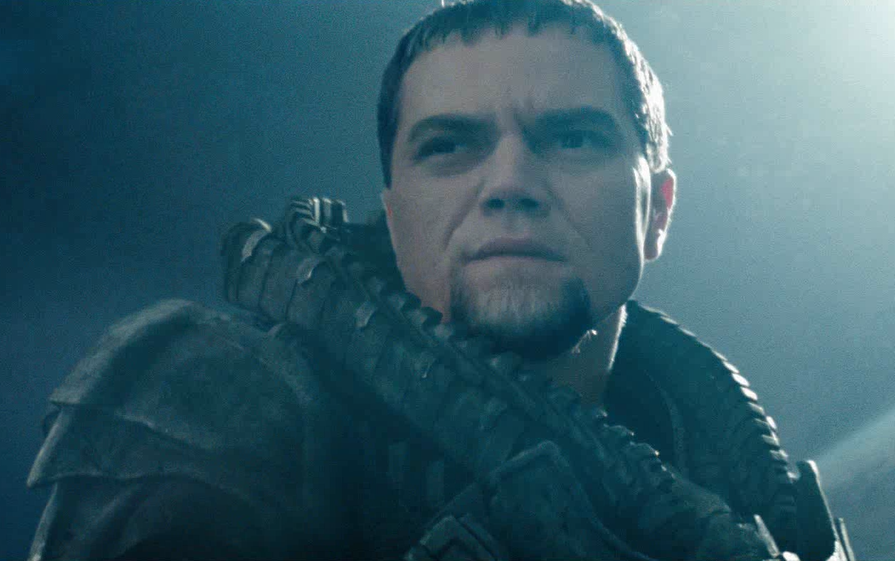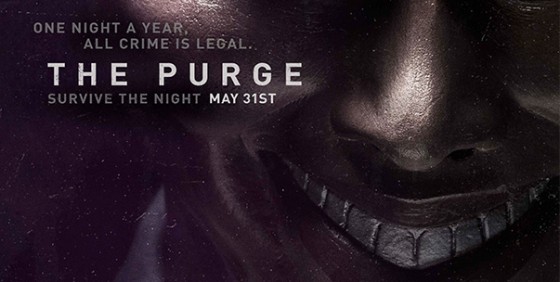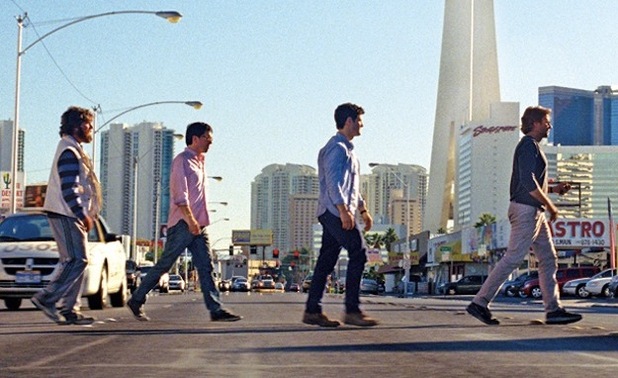Man Of Steel is a true depiction of the direction that the DC Universe is taking with Christopher Nolan and David S. Goyer at its helm. This duo was responsible for the epic Dark Knight trilogy and offered their respective talents to Zack Snyder as he attempted to banish the curse that seems to linger around the Superman franchise.
The Superman jinx has caused problems for even the most established of directors. Bryan Singer's attempt, Superman Returns, was the most recent at creating a decent film about the Last Son of Krypton but was a massive flop in spite of its cast and hefty budget. Many feared that Snyder, with his less than entirely dependable record, would be unable to shake the curse. However, Man of Steel is a surprisingly good film and, whilst flawed, sets up what has the potential to be an exciting franchise.
 As with Batman Begins, Goyer seemed keen to dedicate the first in this fresh superhero series to Kal-El's origin; making Man of Steel a prologue to the established story of Clark Kent. Hence, Kal-El's story from birth to adulthood (as he develops into the superhero marauding as Clark Kent, Daily Planet reporter) is explained to us at length and in great detail.
As with Batman Begins, Goyer seemed keen to dedicate the first in this fresh superhero series to Kal-El's origin; making Man of Steel a prologue to the established story of Clark Kent. Hence, Kal-El's story from birth to adulthood (as he develops into the superhero marauding as Clark Kent, Daily Planet reporter) is explained to us at length and in great detail.
Very little was spared by the production team when creating the crumbling Krypton, and the opening scenes depicting General Zod's uprising against the Krytponian Council demonstrate the monumental scale of the budget. The risk behind allocating such a large budget to a franchise known to be difficult is a huge demonstration of faith by the production companies in Snyder, but also in Goyer and Nolan. The faith pays off completely and Snyder was able to create a breathtaking Krypton.
A large portion of the film is taken up by flashbacks to Kal-El's childhood on Earth and the events that defined him. Bullies, life lessons from his father (Kevin Costner) and near-death experiences throughout his formative years lead to a young man who doesn't understand his differences to the human race, nor his place on Earth. Henry Cavill won't get a lot to play with in terms of meaty acting with Superman; he is an invincible alien who isn't flawed in the way that Bruce Wayne is. However, Kal-El's desperation as he travels the world in search for answers is well depicted by Cavill. He also does well to get his teeth into the emotional tussle between "Supes'" passion for the human race and his obvious desire to preserve his own kind. There is a vulnerability to the character that Cavill manages to tap into thanks to Goyer's writing.
Man of Steel boasts an excellent cast, who all live up to their reputation. Michael Shannon is superb as General Zod, in keeping with the frightening intensity of previous DC villains under the Nolan and Goyer reign. Amy Adams is an excellent Lois Lane, whose only downfall is the lack of tongue-in-cheek comments we expect from the quick-wit of Lane's character. This humourlessness is one of the film's two greatest flaws. Whilst it is a theme characteristic of the new DC world, Superman is a franchise that arguably needs a touch of humour due to the ridiculousness of its premise. Kevin Costner and Russell Crowe, playing the two fathers (Jonathan Kent and Jor-El), are the biggest culprits as they remain unflinching in their solemn severity, delivering life lessons to Kal-El. Whereas in the Dark Knight trilogy, we can rely on Christian Bale and Michael Caine to deliver some sharp one-liners, Man of Steel offers very little in this department.
 There are some scenes worthy of a smirk though, if you look closely enough. Kal-El in full Superman dress being marched down a corridor with handcuffs on was particularly ironic. Cavill's dry delivery of, "If it makes them feel more secure..." and the preceding arrest scenes, actually raise some interesting points about the nature of humanity when faced with something we do not understand. This fear of the unknown is an underlying theme to the film and Goyer sheds a harsh light on humanity, asking us to take a look at ourselves and the manner in which we react to the different among us.
There are some scenes worthy of a smirk though, if you look closely enough. Kal-El in full Superman dress being marched down a corridor with handcuffs on was particularly ironic. Cavill's dry delivery of, "If it makes them feel more secure..." and the preceding arrest scenes, actually raise some interesting points about the nature of humanity when faced with something we do not understand. This fear of the unknown is an underlying theme to the film and Goyer sheds a harsh light on humanity, asking us to take a look at ourselves and the manner in which we react to the different among us. One of the challenges with the Superman franchise is the titular character's invincibility. It is a difficult thing to make a fight between Superman and his foe interesting when you cannot see the former falling short. Snyder's answer to this problem seems to be pitting Kal-El against his own, equally powerful, race and causing an inordinate amount of damage to Metropolis in the process. It was evident for all to see where the majority of the budget had gone. The length, and seeming endlessness, of these excessively destructive battle sequences were frustrating and contributed massively to the duration of the film itself. The audience watch as two superhumans crash through buildings, and later satellites, with complete disregard (somewhat ironic in Superman's case, considering a later scene demonstrating his unencumbered love for humanity). Interestingly, Watson Technical Consulting recently carried out simulations of the battle over Metropolis to determine the consequential costs of such a colossal war. They determined that, with economic impact, Metropolis would need $2 trillion to regain their former mighty status (see picture attached for further figures - credit to Buzzfeed.com). Avengers and Chitauri, take note: this is how you destroy a city.
One of the challenges with the Superman franchise is the titular character's invincibility. It is a difficult thing to make a fight between Superman and his foe interesting when you cannot see the former falling short. Snyder's answer to this problem seems to be pitting Kal-El against his own, equally powerful, race and causing an inordinate amount of damage to Metropolis in the process. It was evident for all to see where the majority of the budget had gone. The length, and seeming endlessness, of these excessively destructive battle sequences were frustrating and contributed massively to the duration of the film itself. The audience watch as two superhumans crash through buildings, and later satellites, with complete disregard (somewhat ironic in Superman's case, considering a later scene demonstrating his unencumbered love for humanity). Interestingly, Watson Technical Consulting recently carried out simulations of the battle over Metropolis to determine the consequential costs of such a colossal war. They determined that, with economic impact, Metropolis would need $2 trillion to regain their former mighty status (see picture attached for further figures - credit to Buzzfeed.com). Avengers and Chitauri, take note: this is how you destroy a city.
Since Nolan's Batman, the DC universe has become a lot darker than its Marvel cousins and Man of Steel is no exception to this. Whilst it could have been far more refined in its explosiveness, for it does feel very long, Snyder had the incredibly difficult task of interesting the masses with 'Superman vs. Zod' so can almost be forgiven. In short, Man of Steel is a good film which has kickstarted a potentially great franchise; something I never thought I'd say about a Superman film.








